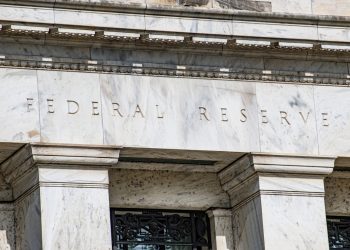 RISMEDIA, September 3, 2009—(MCT)—Life with a credit card presumably got a little easier in August 2009. Under new federal regulations, credit card companies have to give more warning before upping your interest rate and more notice before your bill is due. And another round of consumer-friendly changes goes into effect in February 2010. It’s all part of the Credit CARD (Card Accountability Responsibility and Disclosure) Act of 2009, aimed at protecting consumers from unexpected fees and excessive penalties. That’s the good news.
RISMEDIA, September 3, 2009—(MCT)—Life with a credit card presumably got a little easier in August 2009. Under new federal regulations, credit card companies have to give more warning before upping your interest rate and more notice before your bill is due. And another round of consumer-friendly changes goes into effect in February 2010. It’s all part of the Credit CARD (Card Accountability Responsibility and Disclosure) Act of 2009, aimed at protecting consumers from unexpected fees and excessive penalties. That’s the good news.
The bad news is that in recent months, credit card companies have been ratcheting up interest rates and cutting card limits. It’s partly in anticipation of the new restrictions and partly a response to increasing default rates among recession-battered consumers who can’t pay their bills. “Regardless of the apparent consumer victory and the noble intentions behind the new law,” said Ben Woolsey, a consumer credit expert at CreditCards.com, “the unintended consequences—higher credit costs, less generous terms and higher prices across the board—could be the rule and not the exception.”
Credit card interest rates and fees overall are up an average 20% since January 2009, according to consumer savings website BillShrink.com, based on its survey of 150 major cards over the last seven months. Similarly, credit limits—the maximum amount you can charge on your plastic—have been cut back this past year for an estimated 58 million Americans—many of whom had high credit scores and no problems with their existing card. That’s according to a recent study by FICO, developer of the widely used consumer credit score.
“There’s been a lot of pre-emptive activity over the last six months in preparation for the law going into effect,” said Billshrink’s co-founder and president, Schwark Satyavolu. “A lot of banks are effectively trying to get in their changes in rates and fees now to make them egregiously higher before the law goes live.”
Under the changes that took effect in August, credit card companies must issue monthly bill statements 21 days before they’re due, instead of 14 days. And they must give card holders an extra month’s notice before raising interest rates—45 days instead of 15. And if you elect to drop the card and pay off the balance, you can do so at the old interest rate. There’s been some backlash to all the increases. Consumer blogs are rife with complaints about rate hikes on credit cards.
The fee hikes and other changes have been the trend this past year and will intensify through February, said Gerri Detweiler, a consumer credit expert with San Francisco-based Credit.com. “Issuers are experiencing increased charge-offs and defaults by customers who are severely delinquent,” where it’s much less likely they’ll be able to collect what’s owed.
The situation is “frustrating for consumers who are trying to do the right thing and make their payments on time but are really backed into a corner when a card issuer raises their minimum payment or interest rate and makes it difficult for them to dig out.”
“If you’re a customer with a good payment history, low debt and a strong credit score, you may be able to negotiate with your bank (card issuer) to reinstate your credit line or come to a happy medium on interest rates,” Detweiler said. But if you have high credit card balances, are falling behind on payments or having trouble making minimum payments, calling your card issuer could trigger more scrutiny of your account and lead to even bigger rate hikes, she said. If you’re struggling, Detweiler recommends talking with a credit counseling agency to get all your debt under control. Or look into transferring your balance to another card, although there are transfer fees you’ll need to consider. “It’s tricky to navigate and it can be incredibly frustrating when you’re trying to do the right thing,” she said.
About 85% of U.S. households pay credit card charges, primarily interest, according to a study by UC Davis graduate school economics professor Victor Stango and a Dartmouth College colleague, who analyzed data from 10,000 consumers between 2006 and 2008. Their study also found that 48% of those surveyed incur penalties for late payments or exceeding their credit card limits. “A lot of these fees are incurred because consumers are unaware of them or didn’t fully understand the terms they signed,” said Stango. Because credit card rates and penalties are “dramatically” changing now, Stango said it’s crucial that consumers pay attention to bills and letters from card issuers. “If you throw away the letter, you could be in for a nasty surprise two or three months later,” he said.
Until it all shakes out, “the best thing consumers can do is stay on top of these changes and evaluate their options regularly,” said BillShrink.com’s Satyavolu. “Keep more vigilant about your credit card choices, until the credit card industry stabilizes and figures out what fees and rates they’re going to stick with. A lot will keep changing over the next year.”
(c) 2009, The Sacramento Bee (Sacramento, Calif.).
Distributed by McClatchy-Tribune Information Services.










